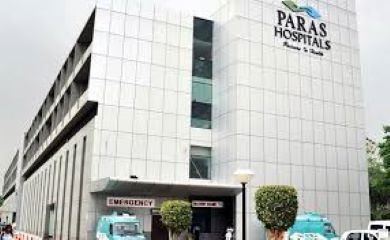Approximately 35% of male cancer patients and 12% of female cancer patients at Paras Health were diagnosed with tobacco-related cancers

On the occasion of World No Tobacco Day, Paras Health has raised serious concerns over the increasing burden of tobacco-related cancers in the region. Despite a national decline in tobacco consumption, the hospital has reported a notable uptick in cases linked to tobacco use over the past five years, signaling a widening gap between awareness and behavioral change.
According to hospital data, approximately 35% of male cancer patients and 12% of female cancer patients at Paras Health were diagnosed with tobacco-related cancers, underlining the disproportionate impact of tobacco on men. Alarming trends also show a rise in younger individuals, some in their late teens and early twenties, falling prey to nicotine addiction and associated health complications. The average age of patients diagnosed with tobacco-related conditions falls within the 35 to 44 age bracket, with a significantly higher prevalence among males.
Dr. Ashwani Kumar Sharma, Senior Director & HOD of Surgical Oncology & Robotic Surgery at Paras Health, Gurugram, said, “We are increasingly treating male patients under 45 with these cancers—many of whom began using tobacco in their teens or early twenties. Unfortunately, most cases are diagnosed at a late stage, where treatment is more complex and survival rates are lower. Strengthening tobacco cessation efforts and making early screening more accessible—especially for younger adults and high-risk groups—can make a real difference.”
Each year, between 900 to 1000 patients undergo cancer screenings at Paras Health. However, more than 75% of those diagnosed with tobacco-related cancers present with advanced-stage disease. This pattern points to delayed diagnosis, limited awareness about symptoms, and poor accessibility to early detection programs, factors that drastically affect patient survival.
The hospital underscores that early detection can significantly improve outcomes. For instance, the five-year survival rate for lung and bronchus cancer stands at 26.7% overall, but improves to 65% if caught at a localized stage, plummeting to just 9% in advanced cases. Similarly, oral cancer has a 68% five-year survival rate, which climbs to 80% for stage I and 70% for stage II, but declines to 35% in later stages.
Tobacco use continues to exert a devastating toll on health, extending beyond cancer to include cardiovascular and respiratory diseases, diabetes, infections, delayed wound healing, and complications ranging from dental and reproductive issues to mental health disorders, hearing and vision loss, and even premature death. These conditions often complicate treatment and hinder recovery.
Despite nearly 80% of tobacco users being aware of these risks, addiction remains a formidable barrier, especially among men in business or salaried roles and those with lower education levels. Stressful work environments and limited health literacy are identified as key contributors to continued usage. Studies reinforce that quitting smoking during treatment, particularly in cases of cancer and COPD, leads to better health outcomes, fewer complications, slower disease progression, and increased survival.
On this World No Tobacco Day, Paras Health Gurugram reiterates its commitment to creating a tobacco-free community. The hospital urges individuals to prioritize regular screenings, commit to quitting tobacco, and advocate for healthier lifestyle choices among peers and families.

Subscribe To Our Newsletter & Stay Updated